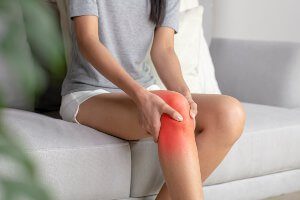 Many car crash injuries carry a risk of long-term side effects. For example, damage to one of your joints, including the soft tissues, could increase the chances of arthritis, also called post-traumatic arthritis.
Many car crash injuries carry a risk of long-term side effects. For example, damage to one of your joints, including the soft tissues, could increase the chances of arthritis, also called post-traumatic arthritis.
In this blog, our experienced lawyers explain how a car accident could cause post-traumatic arthritis, common symptoms and treatments, and including arthritis in a claim for compensation.
If you are suffering with post-traumatic arthritis caused by injuries you sustained in a collision, our Windsor car accident lawyers may be able to help you file a claim. We have recovered more than $300 million for injury victims and their families, including many victims of motor vehicle crashes.
Call to set up a free legal consultation. No upfront fees. Phone: (866) 320-4770.
Defining Post-Traumatic Arthritis
Post-traumatic arthritis is a degenerative condition affecting the joints (knees, hips, ankles, wrists, etc.). It is caused by trauma to the joint, such as from a car crash or another traumatic incident.
A traumatic event could break a bone, pop it out of place, sprain or tear soft tissues. The injury could trigger inflammation, causing cartilage to degrade and break down, resulting in arthritis. This causes pain and limits your ability to use the joint like you used to do.
Post-traumatic arthritis can worsen over time and can be severe enough to have a long-term effect on your mobility and overall quality of life.
Symptoms That May Indicate Post-Traumatic Arthritis
Post-traumatic arthritis takes a while to develop. You are unlikely to feel symptoms immediately. It may take weeks or months for you to experience these symptoms, which may include:
- Swelling
- Hearing a grinding sound when moving
- Increasing pain when you move the joint
- Constant pain, even if you are not moving the affected area
- Limited range of motion
- The joint is tender to the touch
- Increased sensitivity to pain
Treatment of Arthritis From a Car Crash Injury
Prompt and appropriate medical care and physical therapy could put you at much lower risk for post-traumatic arthritis.
Common examples of these treatments include:
- Range of motion exercises to gently stretch joints and help improve flexibility
- Strength training to build up muscles around the affected joints, helping reduce stress on the joints
- Low-impact aerobic exercises like swimming, cycling or walking to improve your overall fitness without putting a lot of unnecessary strain on joints
- Prescribing a brace to improve stability and reduce tension
- Massaging muscles and joints and help break apart scar tissue and reduce pain
- Prescribing at-home exercises you can do to help prevent worsening arthritis; these activities supplement what physical therapists do at your appointments
Not as common, but still a possibility, are progressive procedures, such as debridement, when damaged tissue or fragments are removed from the affected area. Surgery, such as complete joint replacement, may be necessary in extreme cases, if other treatments do not prove to be effective.
The sooner you start treatment, the better your odds of avoiding long-term complications from a car crash injury. That is why you should never assume minor aches and pains will simply go away. It is better to be extra cautious and go to the hospital right after a crash.
Maybe you only have minor injuries but hearing that from a doctor should give you peace of mind. You do not want to make a false assumption and allow your soft-tissues to deteriorate and put you at higher risk of long-term symptoms.
Linking Arthritis to a Car Crash Injury
If your collision was caused by another driver’s reckless or negligent actions, compensation may be available. However, you will need to establish a clear link between your injuries, the onset of your post-traumatic arthritis and the crash.
Another way to think about it is you must prove that, if not for that driver’s negligence and the resulting crash, you would have been uninjured.
Seeking immediate medical attention is a vital first step in linking your injuries to a crash. You also need to demonstrate you are taking your injuries seriously by:
- Continuing to see your doctor for recommended treatment
- Not skipping appointments – if something comes up, reschedule the appointment
- Following your doctor’s instructions regarding treatment and ongoing care, especially restrictions on physical activity meant to promote healing
- Telling your doctor about your progress, pain levels and changes in your symptoms
Taking these steps will help establish a consistent record of treatment that makes it harder to dispute why you are suffering from post-traumatic arthritis.
Your lawyer can evaluate your situation to determine the damages you can seek. While a large percentage of compensation is for medical care (past and future), you may also be eligible for compensation for damages like:
- Lost wages if your injuries cause you to miss work
- Pain and suffering for the physical and emotional consequences of post-traumatic arthritis
- Lost earning capacity if your arthritis has a long-term effect on your ability to work the way you did before the accident
- And more
Are You the Victim of a Car Crash That Caused Post-Traumatic Arthritis? Contact Us Today
Recovering from post-traumatic arthritis can be very difficult. The inflammation, pain and stiffness can make it much harder to return to work and other usual activities.
If your injuries were caused by a Windsor car crash that resulted from driver negligence, Greg Monforton and Partners is here to help. We have been committed to advocating for the rights of the injured for more than four decades.
Contact us to schedule a free consultation about your claim. If we represent you, there are no upfront costs.
Injured by a careless driver? Give us a call today: (866) 320-4770.